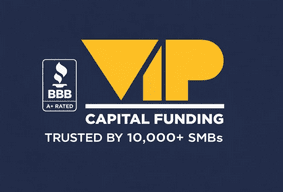Business growth rarely follows a perfectly predictable path. Periods of expansion are often accompanied by timing gaps—between sales and receivables, inventory purchases and customer demand, or hiring decisions and revenue realization. For many companies, the ability to access capital quickly becomes a strategic advantage rather than a reactive necessity.
Quick business funding has emerged as a flexible solution for businesses navigating these growth cycles, offering access to capital without the delays associated with traditional financing structures.
Why Timing Matters More Than Cost in Short-Term Capital Decisions
While long-term financing decisions often center on interest rates and total cost, short-term capital decisions are driven by timing. Delayed access to funds can create operational friction that slows momentum or forces difficult trade-offs.
Quick funding options are designed to address immediate needs, such as:
-
Covering short-term cash flow gaps
-
Securing inventory ahead of demand
-
Supporting marketing or expansion initiatives
-
Managing payroll during uneven revenue cycles
When deployed strategically, speed becomes the primary value driver—allowing businesses to act when opportunities arise rather than waiting for approvals that arrive too late.
To understand how these solutions are structured for rapid access, many businesses explore options like quick business funding that prioritize efficiency and operational alignment.
How Lenders Evaluate Eligibility for Rapid Funding
Although approvals are faster, quick funding is not unstructured. Lenders still assess core indicators of business health to ensure capital is deployed responsibly.
Common evaluation factors include:
-
Recent revenue performance
-
Consistency of cash flow
-
Time in business
-
Industry risk profile
-
Existing financial obligations
Rather than focusing exclusively on traditional credit scores, many providers place greater emphasis on real-world performance metrics. According to industry analysis on reliable funding sources for business operations, lenders increasingly evaluate a company’s ability to generate and sustain revenue when determining eligibility for short-term capital solutions.
Quick Funding vs. Traditional Loans: Different Tools, Different Roles
Quick business funding is not intended to replace traditional loans. Instead, it serves a different role within a broader financial strategy.
Traditional financing is typically used for:
-
Large, long-term investments
-
Real estate or equipment purchases
-
Multi-year expansion plans
Quick funding, by contrast, supports:
-
Short-cycle opportunities
-
Operational continuity
-
Tactical growth initiatives
Businesses that understand the distinction between these tools are better positioned to deploy capital efficiently without overleveraging long-term obligations.
Managing Cash Flow Volatility During Expansion
Growth often introduces volatility. Increased sales volume can strain working capital, especially when expenses scale faster than receivables. Quick funding helps smooth these transitions by providing liquidity when timing gaps appear.
This approach allows businesses to:
-
Maintain vendor relationships
-
Avoid operational slowdowns
-
Preserve flexibility during scaling phases
By aligning capital access with actual revenue cycles, companies reduce the likelihood of disruption during periods of rapid change.
Strategic Use of Fast Capital in Competitive Markets
In competitive industries, speed can be a differentiator. Businesses that can respond quickly to market shifts—whether launching a promotion, expanding capacity, or entering a new region—often gain an edge over slower-moving competitors.
Quick business funding enables leadership teams to act decisively without waiting for prolonged underwriting processes. Over time, this responsiveness supports stronger market positioning and sustained growth.
Choosing a Capital Partner That Supports Long-Term Strategy
Not all fast funding providers operate with the same level of transparency or alignment. Businesses should look for partners that offer:
-
Clear repayment structures
-
Flexible payoff options
-
Straightforward disclosures
-
Ongoing support beyond funding
Selecting the right partner ensures that quick capital functions as a strategic asset rather than a financial burden.
Using Speed as a Competitive Advantage in Dynamic Markets
In fast-moving industries, access to capital is often less about survival and more about positioning. Businesses that can act quickly—whether to secure inventory, launch time-sensitive campaigns, or respond to sudden demand—are better equipped to outperform slower competitors. Quick access to funding allows decision-makers to move with confidence rather than hesitation.
When capital availability aligns with execution speed, businesses can convert short-term opportunities into long-term gains. This strategic use of fast funding helps companies remain agile, reduce missed opportunities, and maintain momentum during periods of rapid change.
Final Thoughts
Quick business funding has become an essential component of modern growth strategies. When used intentionally, it provides businesses with the agility needed to manage growth cycles, address timing gaps, and capitalize on short-term opportunities without compromising long-term stability.
The key lies in understanding when speed matters most—and choosing funding solutions that align with both immediate needs and broader strategic goals.


